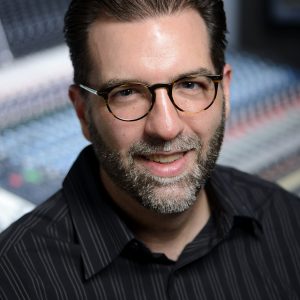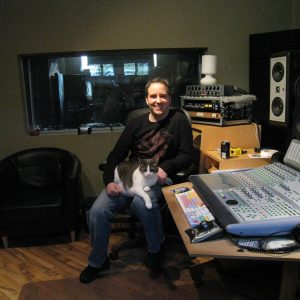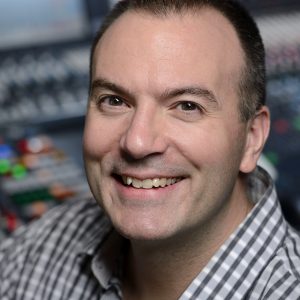Program & Curriculum Highlights
The Master of Arts in Audio Sciences: Recording Arts and Sciences is taught by faculty with extensive experience in many styles of professional audio production. Small classes offer direct faculty-student engagement and maximize student access to our world-class recording studios. Visiting lecturers from leaders in music production and engineering, acoustics, professional and consumer electronics, and more.
Situated within the United States’ oldest conservatory offers students countless listening, recording, collaboration and networking opportunities. Access to specific courses and/or research in the broader Johns Hopkins University community, including physics, signal processing, psychology, and medicine (with qualification and specific interest).
Assistantship opportunities in the second year of study.
Graduates
Some examples of employment and graduate schools that past graduates from the department have gained are:
RECORDING AND PRODUCTION
- 25TH Street Recording (Oakland)
- Avatar Studios (New York)
- Bonati Mastering (New York)
- Big Huge Games (Baltimore)
- Flux Studios (New York)
- Firaxis Games (Baltimore)
- Heartwood Sound Studio (Baltimore)
- Microsoft (Seattle)
ACOUSTICS AND AUDIOVISUAL DESIGN
- Pershing Technologies LLC (Baltimore)
- Convergent Systems Design Group (Baltimore/NY)
- RTKL (Baltimore)
BROADCAST
- NBC
- Saturday Night Live (Music Mixer)
- Tonight Show with Jimmy Fallon (Music Mixer)
- National Public Radio (DC)
- Tanglewood Music Festival (MA)
- Aspen Music Festival (CO)
- Brevard Summer Music Festival (Internships)
PRODUCT DESIGN AND APPLICATION
- Apple Inc. (Beats Division)
- Google
- Bose
- Polk Audio / Sound United
- Definitive Technologies
Industry Affiliations
- Audio Engineering Society (AES)
Course Descriptions
Advanced Recording Systems
Theory and practical application of the tools and techniques used in professional audio recording in all common musical styles. Topics include a review of studio acoustics, human perception of sound, microphone theory and application, signal processing, recording, mixing and mastering. Advanced techniques in classical, jazz and rock music recording, and other styles as time permits. Prerequisite: Acceptance to Recording and Production track of the Master of Arts in Audio Sciences program, or permission of instructor. (3-3)
Advanced Studio Production
Advanced practical training in producing and engineering recordings in a variety of musical styles at a professional level in a masterclass-like environment with an accomplished professional recording engineer. Final capstone projects will be evaluated by a panel of outside producers representing Classical, Jazz and Rock music styles and engineers who are experts in their respective field of professional audio recording, and presented at the end of the year in an open forum attended by all students in the Recording Arts and Sciences department. Prerequisite: Recording IV or Advanced Recording Systems(3-3)
Consumer Audio Systems: Critical Listening and Analysis of Topologies
An introduction to the world of consumer audio electronics. Explanation of the playback chain and how to make objective listening comparisons. A survey of equipment paired with listening assignments exposes the students to relevant subsystems and their contribution to the sound of a system. At the end of the course students will have a deep understanding of these topics and the ability to aurally discern the musical impact various design topologies have on the playback of recorded sound. Co- and Pre-requisites: Recording III or Advanced Recording Systems, or by permission of instructor. (3)
Audio Science & Technology
This course is designed to integrate many of the audio and acoustics concepts discussed in the Master of Arts: Concentration in Recording and Production degree curriculum into an exploration of the electronics and acoustics fundamental to audio engineering. Topics include Electronics Fundamentals such as Current, Voltage, Power, and Impedance; Reactive Circuit Elements; AC Circuits; Crossovers; Integrated Circuits; Transistor-Based Amplifier Circuits; Power Supply Technology; Transformers; Microphone and Headphone Amplification; Distortion; System Noise; and Digital Audio. Emphasis is placed on test and measurement, with students building and measuring their own circuits and sub-circuits. Co- and Pre-requisites: Introduction to Electrical and Computer Engineering or Advanced Recording Systems (graduate), or by permission of instructor. (3)
Musical Acoustics
A course concerned with the physics of sound as applied to properties of musical instruments, perception of musical sound, electronic music reproduction, and the spaces in which they perform. Prerequisites for recording arts majors: Recording I and II or equivalent. Prerequisite for non-recording majors: Recording for Musicians or equivalent. Open to others by permission of instructor. (3,0)
Electroacoustics
This class will cover the basic fundamentals of electroacoustics subdivided into roughly four units: fundamentals and transducer theory, loudspeakers, headphones and microphones. Prerequisite for non-recording majors: Recording for Musicians or equivalent. Open to others by permission of instructor. (0,3)
Psychoacoustics
The course focuses on the basics of the physiological and psychological aspects of hearing with applications to audio and sound systems, architectural acoustics, and musical acoustics. Topics include auditory physiology of the outer and inner ear, masking, critical bands, loudness, duration, binaural hearing, localization, and pitch. (3)
Architectural Acoustics
This course covers the fundamentals of architectural acoustic design, including theoretical foundations and practical applications of sound in space. Foundational content covers the physical nature of sound waves, acoustic impedance, energy density, reflection/refraction/diffusion, sound absorption, acoustic materials, psychoacoustic aspects, room modes, statistical versus geometric acoustics, reverberation theory, coupled-space acoustics, large versus small room acoustics. Applications range from learning spaces, spaces for music performance, spoken-word theater spaces, worship spaces, recording spaces/broadcast spaces, spaces for music rehearsal, and open office environments. Open to students in the Recording Arts Department, or by permission of instructor. (3)
Sample Elective Options:
Sound Design for Video Games
This course in designed to bring together students with backgrounds in composition and/or recording engineering to learn the fundamentals of designing sound and music for video games. Topics will include an overview of the game production process and team members involved, elements of sound design, surround sound principles, MIDI, interactive music structures, Middleware and an exploration of common console and PC hardware. Final project: All sound and music for a 3-5 minute of actual gameplay, in surround. Open to Composition, Computer Music and Recording Arts and Sciences majors, or by permission of instructor. (3)
Audiovisual System Design
The objective of this class is to provide students with an overview of commercial audiovisual systems design. This will include both the considerations required to design audiovisual systems and all the ancillary considerations required to properly integrate these systems with architecture, electrical, mechanical, structural, and IT systems. Open to students in the Recording Arts Department, or by permission of instructor. (0,3)


